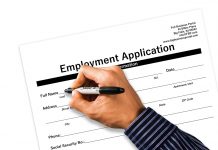
Hong Kong unemployment rate rises to 15-Year High. It rose 0.7 percentage points from 5.2% for the first three months of 2020.
The Hong Kong unemployment rate in Hong Kong soared to its highest level in 15 years, reaching 5.9% for the March to May period, according to official data.
The increase in jobless rate came as the coronavirus pandemic has pushed the city's economy deeper into recession after months of political demonstrations.
The Hong Kong government does not expect the labor market to recover in the near term.
"While the local epidemic situation has abated, it will take time for local economic activities to return to normal. The external environment also remains difficult as the pandemic continues to weigh on the global economy, “ said Law Chi-kwong, the Secretary of Labor and Welfare.
Economic competitiveness
Hong Kong dropped by three places in an annual ranking of the world’s most competitive economies.
“Hong Kong SAR came in at 5th. This is a far cry from 2nd, which it enjoyed last year. The decline can be attributed to a decline in its economic performance, social turmoil in Hong Kong as well as the rub-on effect of the Chinese economy,” the IMD World Competitiveness Centre’s report says.
A government spokesman put the blame on the anti-government protests last year sparked by the now-withdrawn extradition bill.
“The social unrest involving a high level of violence, acts of vandalism and intimidation of people holding a different political standpoint has also affected how Hong Kong was perceived,” he said.
“Certain survey indicators of the IMD report showed that survey respondents were deeply concerned about Hong Kong’s social and political stability.”
He believes that the national security law imposed by Beijing on the city can serve as a necessary safeguard as threats and organisations advocate “Hong Kong independence”.
“We must stress that the national security legislation will not affect Hong Kong's high degree of autonomy under ‘one country, two systems’,” he noted.
Meanwhile, Chinese University economist Terence Chong Tai-leung explained that the city’s future rankings is based on whether the local economy could recover after the coroanvirus pandemic and attract investors.
“We also have to see if the US will sanction Hong Kong or China. On the effects of the national security law, it will depend on whether the city becomes unstable after the legislation,” he said.
Hong Kong's status
“It depends on the political sentiment,” he said. “Now, the political sentiment leads everything.”
How Hong Kong behaves can predict its post-2047 status, according to Zhang Xiaoming, deputy director of China’s Hong Kong and Macau Affairs Office.
“I have noticed quite a lot of people in Hong Kong are looking ahead to ‘One Country, Two System’s’ fate after 2047,” Zhang said during an online seminar about the city’s mini-constitution.
“What kind of record will Hong Kong show to the people of the whole country, represented by the then National People’s Congress, for a new mandate?” he said.
Zhang added the stronger the commitment to national security, the more the “One Country, Two Systems” principle could be upheld.






